Recovery and Treatment
The pathway to recovery and treatment is different for everyone, and the first step can be as simple as having the conversation with someone close to you. Having substance-free spaces can be a pivotal step in support in the journey to recovery, but we understand the exploration of one’s substance use with the goal to reduce or eliminate it can mean taking non-abstinence-based approaches.
WHY NOT ABSTINENCE?
Atira adopts a feminist, woman-centred, harm reduction approach, committed to working with women who are struggling with their substance use and/or mental wellness. We support women who choose abstinence, but understand abstinence is just one option for women struggling with substance use. We believe women have the right to self-determination, understand women’s experiences with gender-based violence is central to their use of substances, and meet women where they are at.
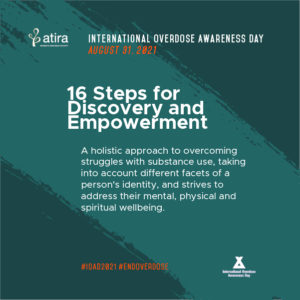
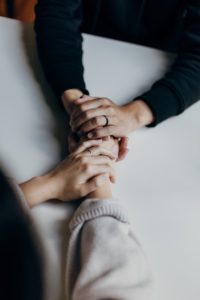
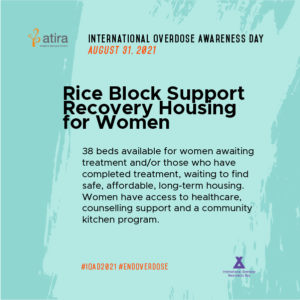
16 Steps to Discovery and Empowerment is an approach developed by Dr. Charlotte Kasi to support people who are wanting to overcome their struggles with substance use in a holistic way, and strives to address physical, mental, and spiritual wellbeing. This approach is adopted in all of our recovery programs and in varying degrees at most of our programs to meet women at where they are at, including our Stopping The Violence Counselling.
We operate The Rice Block Support Recovery Housing for Women, offering 36 beds for women who are seeking to support to reduce or stop their problematic use of substances. 10 beds are offered to women who have completed detox and are awaiting treatment, while 28 transitional beds are available to those who have completed treatment and are waiting to find safe, affordable housing. Our newest program Veronica Block Supportive Recovery Housing will support First Nations, Métis and Inuit women by offering 30 self-contained units for women who are seeking to reduce or eliminate their substance use. The site will be staffed 24 hours a day, seven days a week and offer culturally-sensitive programming.

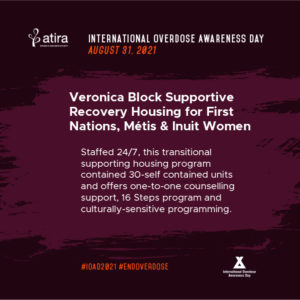
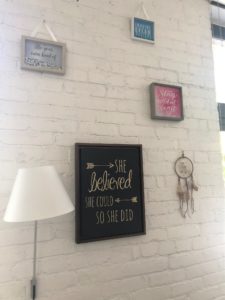
WHAT ABOUT SAFER SUBSTITUTES TO TOXIC SUBSTANCE SUPPLY?
Another way to treat substance use disorder can be through receiving opioid substitution treatment, using opioids such as methadone or Suboxone to provide sufficient long-acting relief from withdrawal or cravings for substances like heroin or fentanyl. In September 2020, with the COVID-19 pandemic exacerbating the province’s ongoing overdose crisis, the Provincial Health Officer issued an order allowing registered nurses and registered psychiatric nurses to prescribe safer alternatives to toxic street substances for people who use. Until then, only doctors and nurse practitioners were able to prescribe substitute medications.
In 2016, the province officially declared the overdose crisis to be a public health emergency. Since then, over 7,760 people in British Columbia have died from illicit substances, and more than 1,000 people have already passed away from suspected overdose this year, the deadliest first six months ever recorded. Increasing access to safe supply will no doubt contribute to combating the overdose crisis, but advocates say more needs to be done to address the high level of substance potency, and lack of people living with opioid disorder accessing safe alternatives.
RESOURCES:
RECOVERY AND TREATMENT RESOURCES:
- First Nations Health Authority: Treatment Centres
- Vancouver Coastal Health
- Fraser Health
- Interior Health
- Find treatment and support near you
If you need support, contact us at 604-681-4437 or call our 24/7 call-in support line at 604-800-8881.
